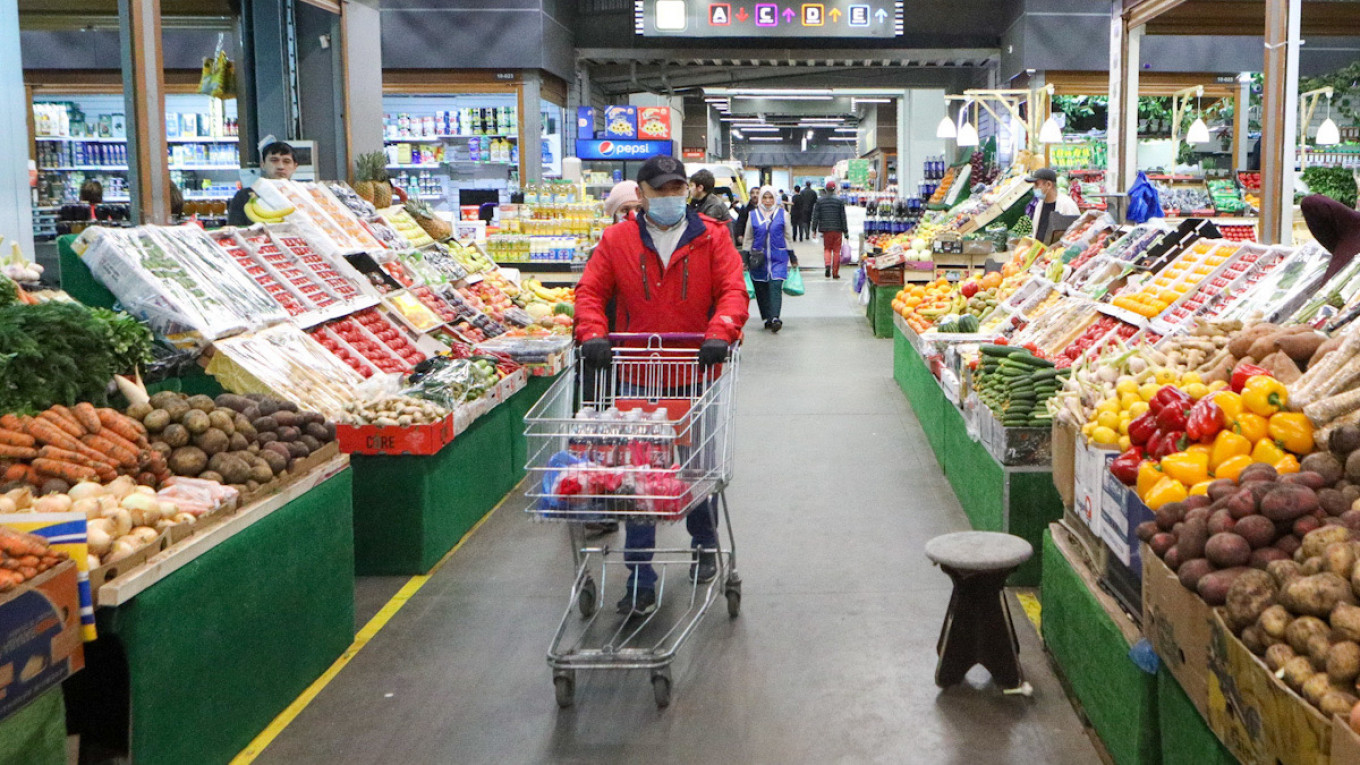At least one-third of Russians are actively preparing for a second coronavirus lockdown despite officials’ continued assurances that there are no plans to enact stricter measures, the RBC news website cited a survey as saying Friday.
Russia has seen record-breaking surges in new coronavirus infections over the past two months as the outbreak gradually shifts from Moscow, which remains the epicenter of the pandemic in Russia, to the regions. Despite this, authorities have avoided returning to wide-reaching lockdowns that were seen in the spring, when Russia was recording about 10,000 new cases per day.
According to the survey by the Yula advertisement aggregator and the ResearchMe agency, 20% of respondents have started stocking up on food and basic necessities to prepare for a potential second lockdown. Another 12% said they have also started buying other types of products in case non-essential shops are closed.
More than half (51%) of respondents started shopping closer to home after some restrictions were re-introduced in Russia’s regions this fall. At the same time, about 40% of Russians said they were forced to start saving and were trying to limit their spending to essential purchases.
One in 10 respondents said they plan to start shopping online more often, the survey said.
President Vladimir Putin said Thursday that Russia has no plans to enact nationwide lockdown measures that would close down the economy, saying that targeted restrictions were enough to keep the virus under control.
Moscow Mayor Sergei Sobyanin echoed these comments, saying the city's targeted anti-coronavirus measures like requiring masks and gloves in public places and a QR-code system in bars and restaurants were adequate for controlling the virus.
Russia registered a new single-day record of 18,283 Covid-19 cases on Friday, bringing the total number of infected to 1,599,976. Reports have described widespread hospital bed, staff and drug shortages across Russia's regions in recent weeks.
During the first wave of Russia's coronavirus outbreak this spring, major grocery chains and food delivery services recorded an increase in demand for basic goods such as cereals, canned food and hygiene products. Buckwheat and toilet paper almost disappeared from store shelves after strict self-isolation rules were introduced nationwide.
A Message from The Moscow Times:
Dear readers,
We are facing unprecedented challenges. Russia's Prosecutor General's Office has designated The Moscow Times as an "undesirable" organization, criminalizing our work and putting our staff at risk of prosecution. This follows our earlier unjust labeling as a "foreign agent."
These actions are direct attempts to silence independent journalism in Russia. The authorities claim our work "discredits the decisions of the Russian leadership." We see things differently: we strive to provide accurate, unbiased reporting on Russia.
We, the journalists of The Moscow Times, refuse to be silenced. But to continue our work, we need your help.
Your support, no matter how small, makes a world of difference. If you can, please support us monthly starting from just $2. It's quick to set up, and every contribution makes a significant impact.
By supporting The Moscow Times, you're defending open, independent journalism in the face of repression. Thank you for standing with us.
Remind me later.






